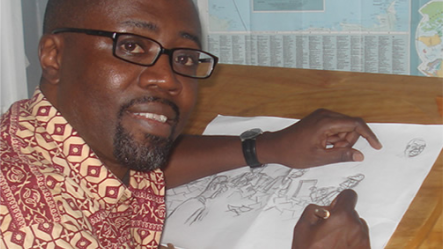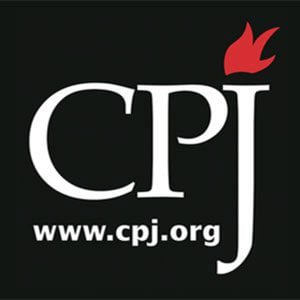 Eye on Africa has often talked about atrocities unfolding, or likely to unfold, in different African states. Most of this information is never collected by myself and is gleaned from news organizations within and outside of Africa. Journalists are perhaps the one group of people that I owe a deep gratitude to. Even when working under tough circumstances they still believe in telling the story, and telling it right. The reason I point this out is because the past year has been a fraught one for African journalists in several countries. From outright assassinations in South Sudan, to the erasure of press freedoms in Rwanda and Kenya, African journalists are quickly becoming an endangered group. So this month’s contribution will focus on the plight faced by journalists working in Africa, for without them, this column would not exist.
Eye on Africa has often talked about atrocities unfolding, or likely to unfold, in different African states. Most of this information is never collected by myself and is gleaned from news organizations within and outside of Africa. Journalists are perhaps the one group of people that I owe a deep gratitude to. Even when working under tough circumstances they still believe in telling the story, and telling it right. The reason I point this out is because the past year has been a fraught one for African journalists in several countries. From outright assassinations in South Sudan, to the erasure of press freedoms in Rwanda and Kenya, African journalists are quickly becoming an endangered group. So this month’s contribution will focus on the plight faced by journalists working in Africa, for without them, this column would not exist.
 In Rwanda, the Committee to Protect Journalists has pointed to the continued and systematic dismantling of that nation’s press. While in Kenya, Kenya’s largest media organization (Nation Media group) has been coerced into firing one of its editors who was viewed ‘unfriendly’ to the current government and one of the continent’s preeminent editorial cartoonists. In both of these countries, journalists and news organizations have started self-censoring and, in Rwanda specifically, gone into exile.
In Rwanda, the Committee to Protect Journalists has pointed to the continued and systematic dismantling of that nation’s press. While in Kenya, Kenya’s largest media organization (Nation Media group) has been coerced into firing one of its editors who was viewed ‘unfriendly’ to the current government and one of the continent’s preeminent editorial cartoonists. In both of these countries, journalists and news organizations have started self-censoring and, in Rwanda specifically, gone into exile.
As the conflict in South Sudan has raged on over the past few years, a different war has also continued to become frenzied. The war against journalists and a free press. In 2015 alone, almost 7 journalists were killed by either rebels or the state. Journalists have resorted to sometimes self-censoring for fear of reprisals by the state. Perplexingly, the independence of South Sudan led to the curtailing of the independence of the press. Sentiments against press freedom are often couched in nationalist rhetoric. Journalists finds themselves being asked to always put the nation’s concerns before truth and honesty. 2015 saw the deaths of Randa George, Dalia Marko, Musa Mohamed, Boutros Martin and Adam Juma, all killed in the same attack in January 2015. Peter Julius Moi was killed a day after the president of South Sudan threatened to kill journalists that refused to be subservient to his government.
So this month I tip my hat to those upon whose labour I have benefited from, the journalists I have met over the past few years, and those I am likely to meet in the next iteration of my research. Those in exile hiding from seemingly nasty government officials and those that have lost their job taking a stance and shining a light on underhanded government practices. Without them, and the courage they show, it would be near impossible to know what African governments were doing to their citizens.

Comments